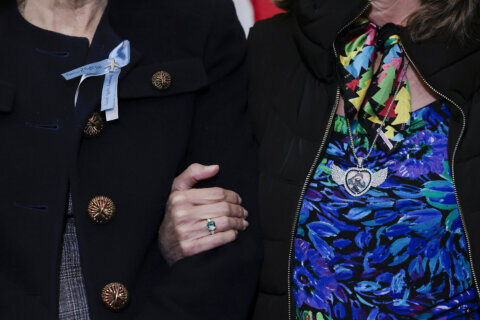WASHINGTON — With Metro delays considered routine and mounting safety issues, a former Metro board member says he is “amazed” commuters are still riding the rail system.
“I have to commend the ridership for sticking with the system with everything going on,” Jim Dyke said Wednesday at a Virginia Commonwealth Transportation Board workshop in Lynchburg.
“I’m amazed that there are people that are still riding this thing after what has happened,” he said.
Dyke previously served on the Washington Metropolitan Area Transit Authority Board for three years.
On Monday, the Federal Transit Administration sent a letter outlining another batch of urgent safety changes, including a number of tasks Metro had said it had made progress on in the past, like improved protections for workers on the tracks.
That adds to a long list of required actions that are now being monitored by federal investigators since the FTA took over as the lead safety oversight agency for Metro last fall and is another sign that the long-promised “safety culture” at Metro can be virtually nonexistent at times.
Virginia Transportation Secretary Aubrey Layne said in an interview that he hopes Metro will prioritize all of the safety orders to minimize risk to riders and workers.
“If WMATA had been making safety No. 1 up front, we wouldn’t be here,” he said. “I think they’re being overwhelmed with information, and I hope they’ll do it wisely.”
While Metro is responsible for implementing safety directives, the FTA is the one ordering the changes because D.C., Maryland and Virginia have failed to set up an independent safety commission that would have enforcement power over Metro.
The region’s leaders’ latest promise is that the commission will be established by next spring.
“We are 100 percent behind setting up the Metro safety commission. But if we get it set up tomorrow, that’s not going to fix the safety problems at WMATA,” Layne told the Commonwealth Transportation Board Tuesday.
Gary Garczynski, a Northern Virginia representative on the Commonwealth Transportation Board, says Metro’s issues run far deeper than the basic maintenance or needed track work.
“There is a crisis in confidence by the riders, who ultimately have to pay the freight,” he said.
Garczynski and several other individual members of Virginia’s transportation policy board said Tuesday that they support the push for more federal funding for Metro, as well as the long-discussed idea of dedicated funding for the system that would come from something like a regional sales tax.
Virginia Department of Rail and Public Transportation Director Jennifer Mitchell believes Metro can turn around declining ridership if service improves.
“The demand hasn’t gone away, it’s that the performance has dropped because of these safety issues that fewer people are riding it,” she said.
Layne met Monday with National Transportation Safety Board officials for an update on some of those safety issues and the investigation into the deadly smoke incident last year near the L’Enfant Plaza station.
He said that he was told to expect no surprises when the final NTSB releases its report May 3.
The initial investigation into the smoke incident that led to one rider’s death prompted a Federal Transit Administration inspection of the Metrorail system that concluded with a scathing report on chaos in the Rail Operations Control Center and a lack of track work.
Since then, the FTA issued other directives for fixes in addition to this week’s letter focusing on significant issues like track problems and red signal violations.
“We want to be a part of the solution, but it’s going to be a whole lot of effort,” Layne said.







